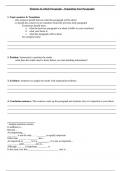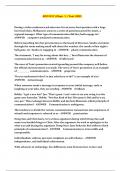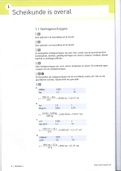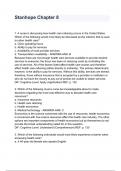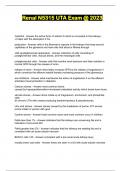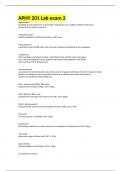Exam (elaborations)
Chapter 3 Chemistry
- Module
- Chapter 3 Chemistry
- Institution
- Chapter 3 Chemistry
Chapter 3 Chemistry Atomic Theory The law of conservation of mass states that mass is neither created nor destroyed during ordinary chemical or physical reactions. The law of definite proportions holds that a chemical compound contains the same elements in exactly the same proportions by m...
[Show more]




